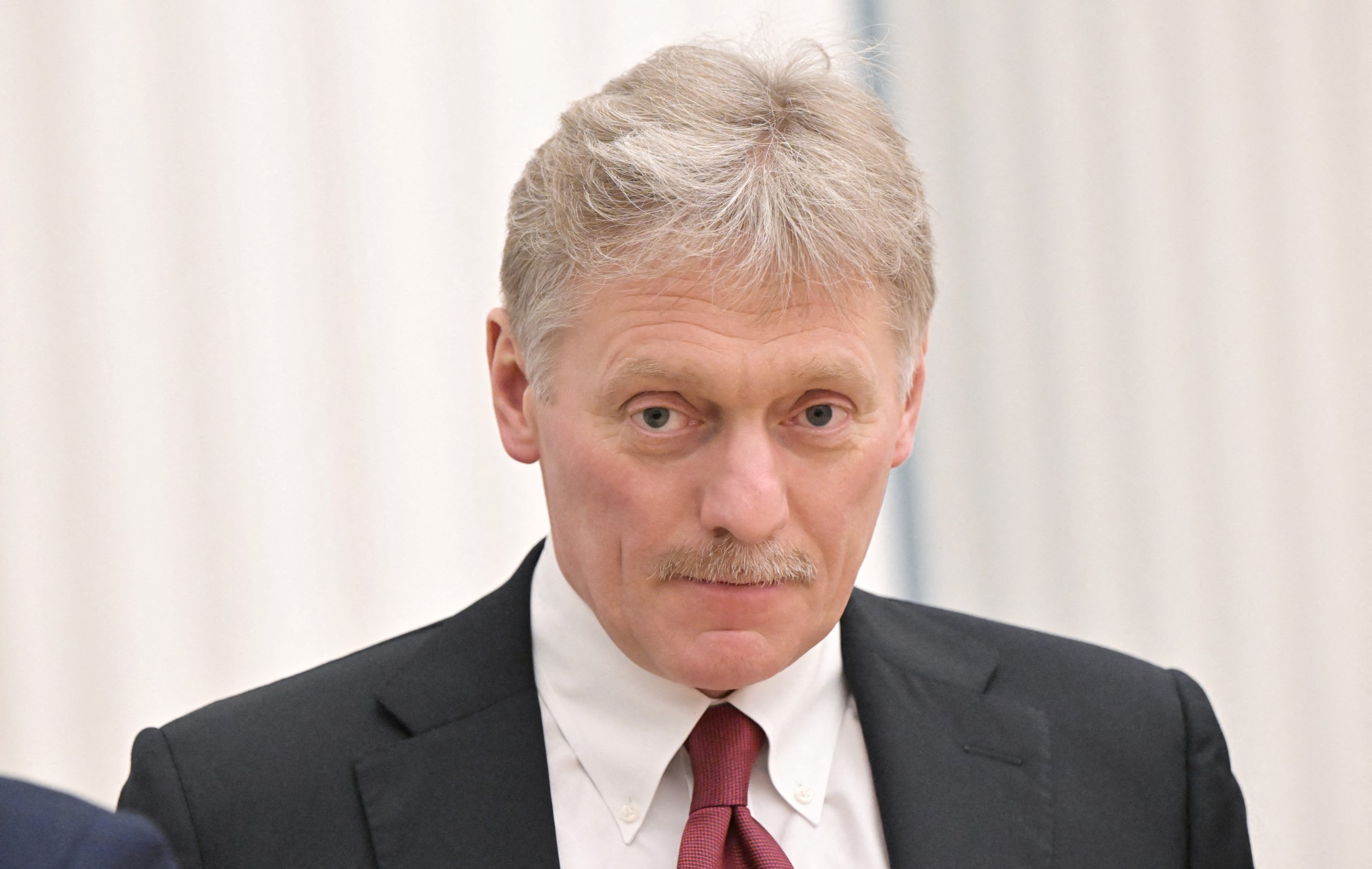
Chris Lange, FISM News
[elfsight_social_share_buttons id=”1″]
The Kremlin said on Friday that Ukraine is responsible for failed peace talks between the two countries, saying it is unclear what Kyiv wants.
In a call with reporters, Kremlin spokesperson Dmitry Peskov said, “The Ukrainian leadership constantly makes contradictory statements. This does not allow us to fully understand what the Ukrainian side wants.”
The remarks follow statements made by Ukrainian President Volodymyr Zelenskyy this week that ceding any territory to Moscow is off the table, regardless of the outcome.
Pro-Russian separatists claim control of east Ukraine town
Russia-backed rebels in eastern Ukraine say they have taken control of Lyman, a town in the Donetsk region, according to the Associated Press. Ukrainian officials have not confirmed the claim.
Donetsk republic military officials said Friday that rebel forces, with the support of Russian troops, “have liberated and taken full control of 220 settlements, including Lyman.”
Lyman is a major railway hub with a pre-war population of over 20,000.
Kremlin blames West for food crisis
Moscow on Thursday blamed the West for the growing food crisis, claiming global food supply shortages are the direct result of sanctions against Russia. Kyiv has been unable to ship out millions of tons of grain and other agricultural products due to the ongoing war.
The U.K. responded swiftly to the statement, accusing Russia of “trying to hold the world to ransom,” insisting there would be no sanctions relief.
Russian President Vladimir Putin told Italian Prime Minister Mario Draghi that Moscow “is ready to make a significant contribution to overcoming the food crisis through the export of grain and fertilizer on the condition that politically motivated restrictions imposed by the West are lifted,” according to a Kremlin readout of the call.
Ukraine is one of the world’s largest exporters of wheat, corn and sunflower oil; however, Russia’s blockade of Ukrainian ports has severely hampered that flow, prompting significant concern over what has become a growing global food shortage.
Russia also is a major grain and fertilizer exporter. In an attempt to lump the blockade on Ukraine’s ports with Russia’s own difficulties in getting shipments out, Kremlin spokesman Dmitri Peskov said the West “must cancel the unlawful decisions that hamper chartering ships and exporting grain,” according to the AP.
The West vehemently denies the accusation. U.S. Secretary of State Antony Blinken pointed out last week that food, fertilizer, and seeds are exempt from sanctions. He added that Washington is working to ensure that the flow of these goods is not interrupted.
World Trade Organization Director-General Ngozi Okonjo-Iweala said roughly 25 million tons of Ukrainian grain is currently in storage and another 25 million tons could potentially be harvested next month, though the war presents a multitude of challenges to that end.
European nations have attempted to mitigate the crisis by moving grain out of Ukraine via rail, but trains can carry only a tiny fraction of what Ukraine produces.
West could let Russian oligarchs buy their way out of sanctions
Western allies are mulling a proposal to allow Russian oligarchs to buy their way out of sanctions and then use the money toward rebuilding Ukraine, according to government officials familiar with the matter who spoke on condition of anonymity to the AP.
Canadian Deputy Prime Minister and Finance Minister Chrystia Freeland raised the idea at a G-7 finance ministers’ meeting in Germany last week, saying that she had discussed the idea with oligarchs with whom she is acquainted from her days as a journalist.
An anonymous official said that Ukraine is aware of the discussions and added that it would be in the West’s interests to have top oligarchs dissociate themselves from Putin while simultaneously providing funding for Ukraine.
“We would not be talking about this if there wasn’t some comfort on the part of the Ukrainians,” the official said. “We need to know that it works for them, too.”
Ambitious clean energy transition
The United States and Germany signed an agreement Friday to work together on technologies and policies to transition from fossil fuels to renewable energy in an effort to fight climate change.
U.S. climate envoy John Kerry said both countries will benefit from shifting to clean energy, which he said will foster job creation and new opportunities for businesses to take advantage of the growing market for renewables.
Germany’s energy and climate minister, Robert Habeck, said the ambitious agreement reflects the urgency of fighting global warming.
“Time is literally running out,” Habeck said, calling climate change “the challenge of our political generation.”
The U.S.-German agreement was signed on the sidelines of a G7 meeting of energy and climate ministers and comes as European countries continue to try to wean themselves off of Russian energy. Germany previously said it plans to stop importing Russian oil by the end of the year, even if the European Union fails to agree on an EU-wide ban.
